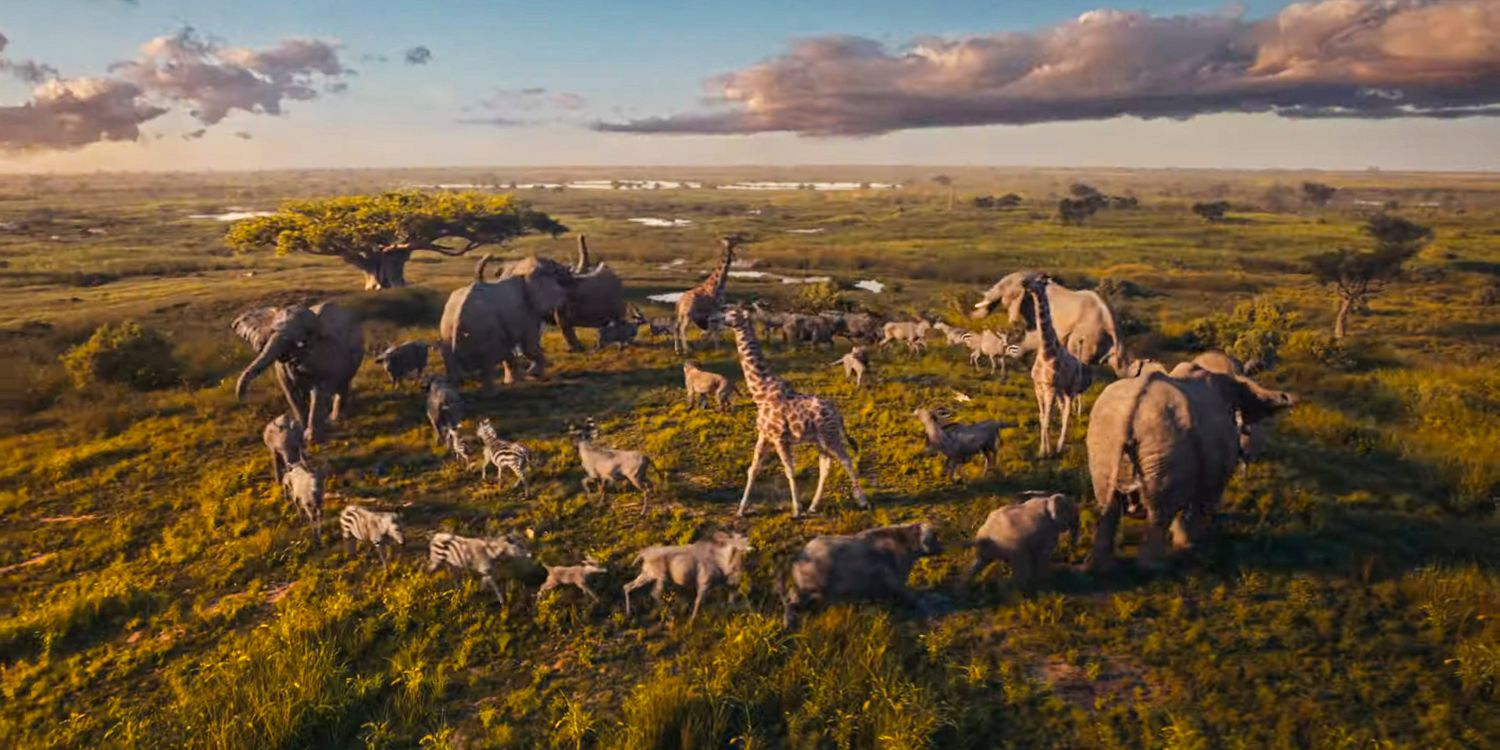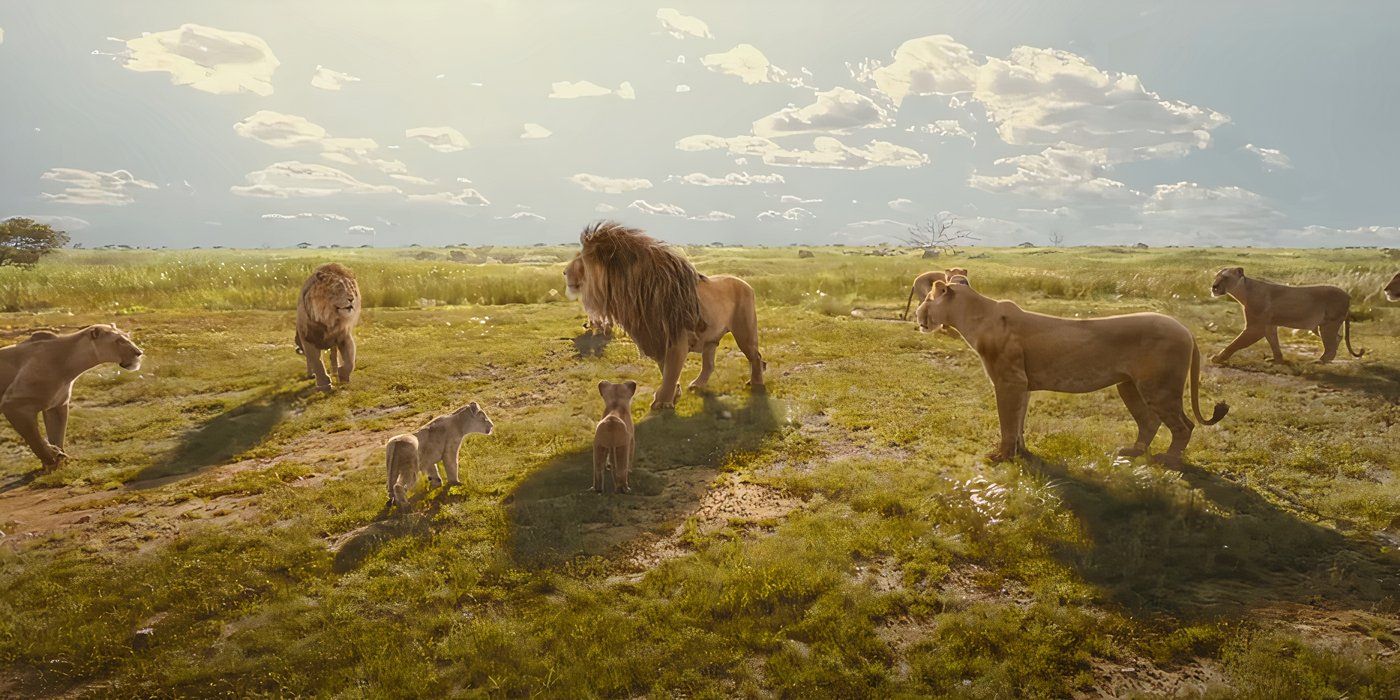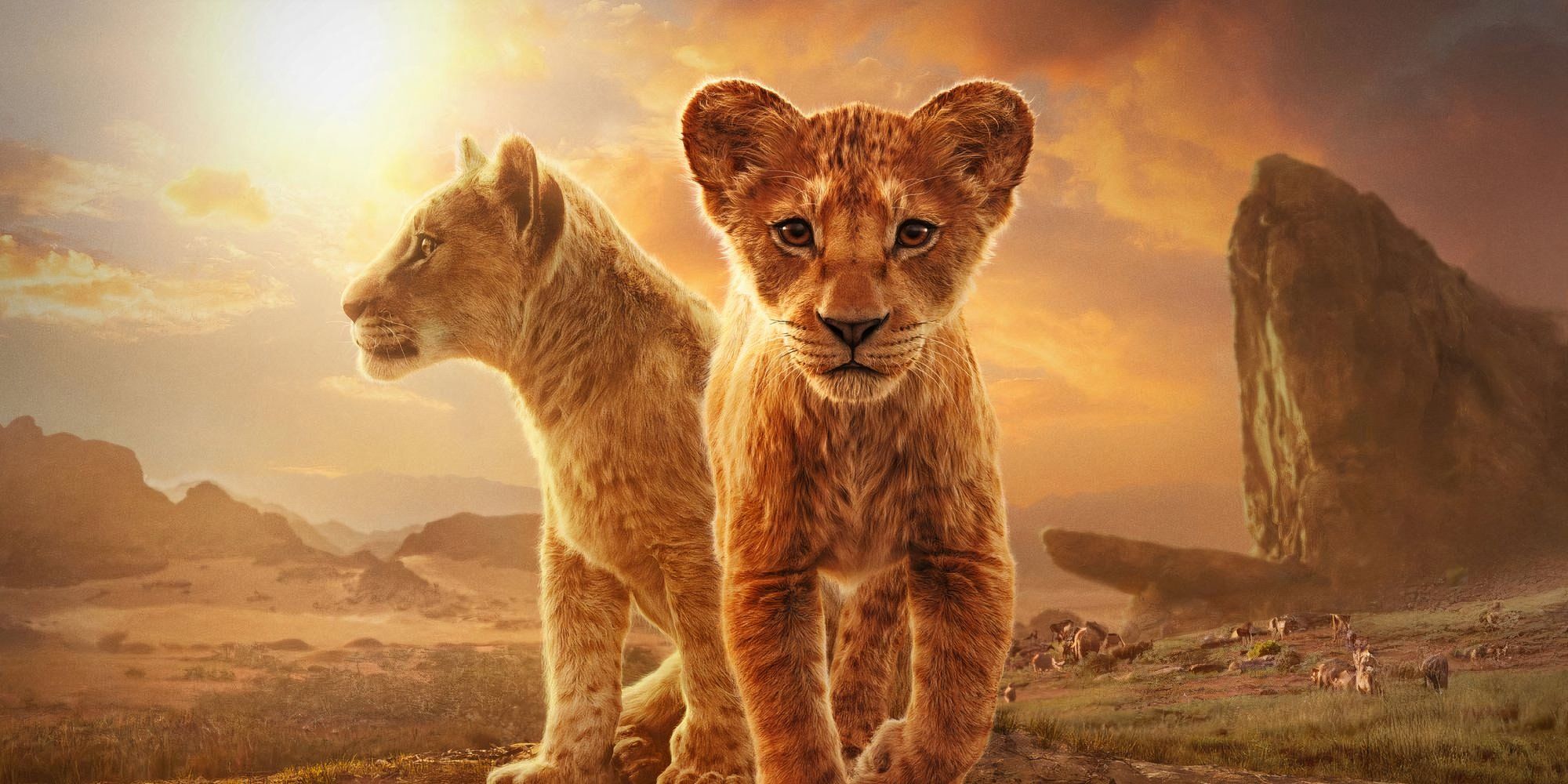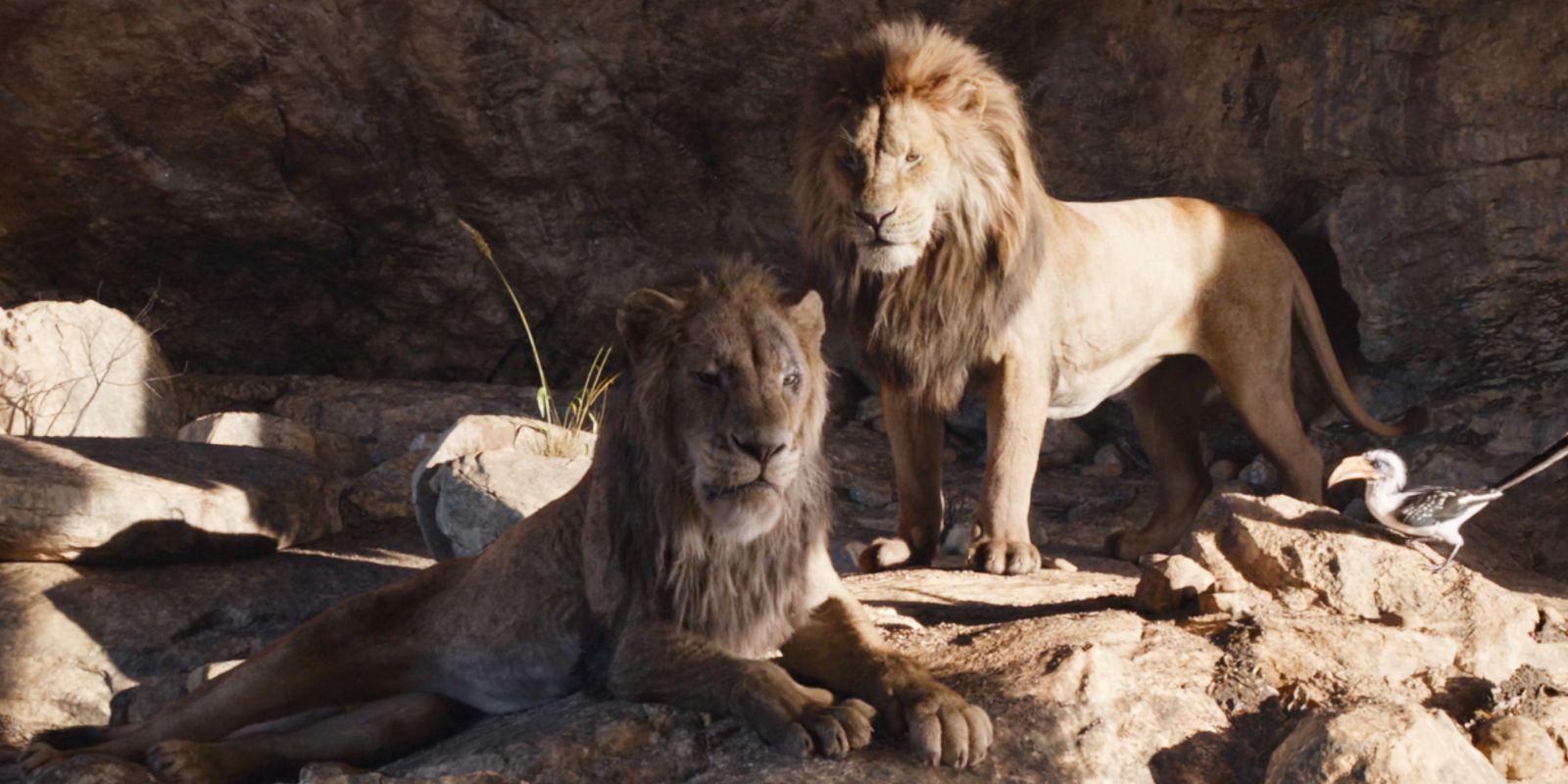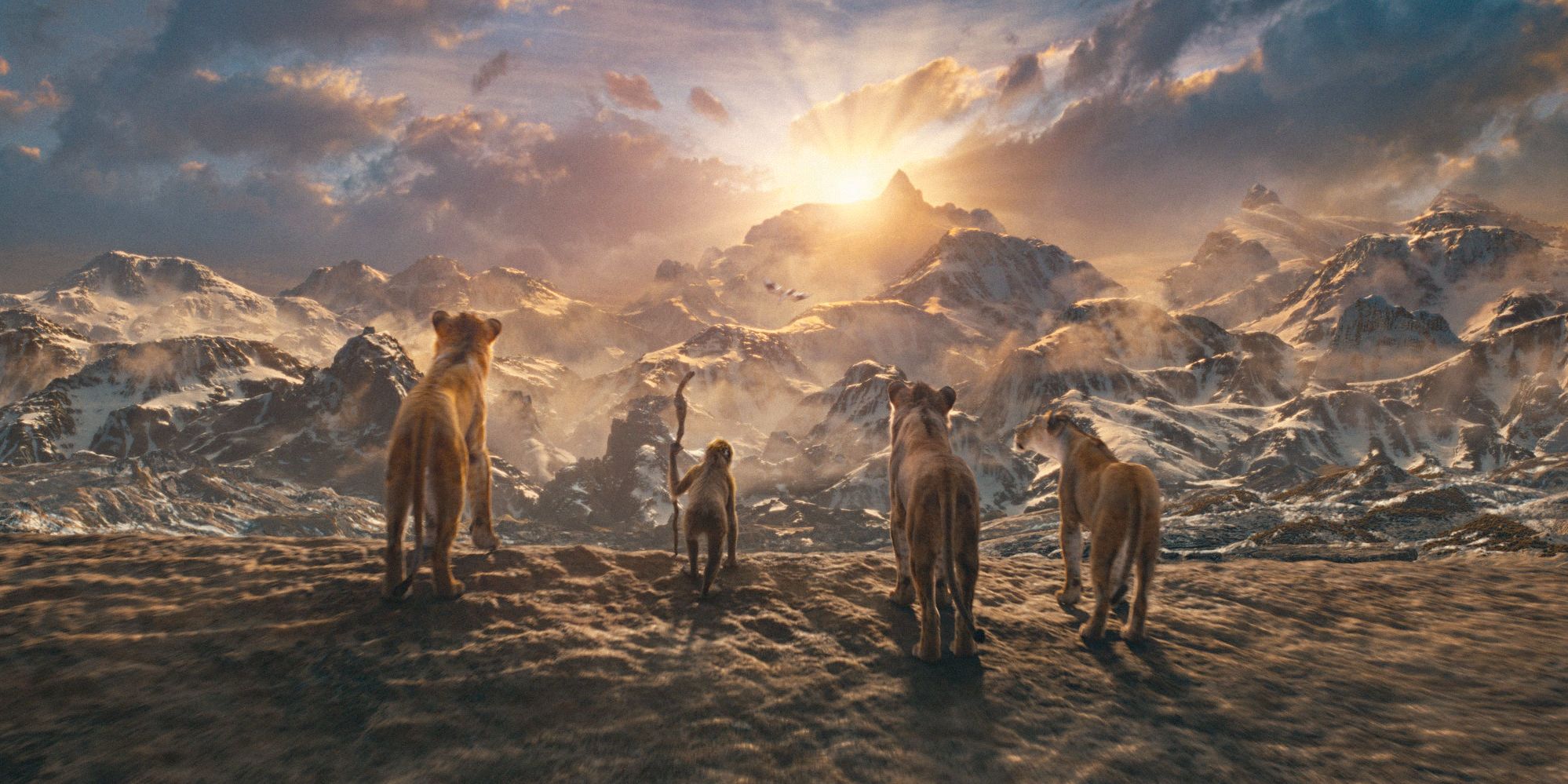
Warning: This list contains spoilers for Mufasa: The Lion King.Mufasa: The Lion King premiered earlier this month and has already made an impact, regardless of the mixed reviews it received from critics. After all, the film's theme could not be ignored. With his unparalleled wisdom, noble heart, and fatherly guidance, Mufasa has always been one of Disney's most beloved characters. Likewise, the year 1994 The Lion King is still to this day one of the most legendary and moving animated films ever made.
Given the success of the original, this latest live-action prequel carried the weight of great expectations, aiming to expand the legacy of a tale that marked generations. By exploring the story of Simba's father and what made him the king audiences fell in love with, the film offers interesting new perspectives on his role in the animated version and his relationship with his brother, affecting the way we see The Lion King. The film expands the emotional depth of Mufasa (Aaron Pierre) and Scar (Kelvin Harrison Jr.) as characters, showing them as affectionate brothers rather than simple rivals.
8
Mufasa is not a king by blood, but by choice
Mufasa earned his title as king
One of the most interesting revelations in the live-action is Mufasa's humble origins. The Lion King was not a king, but an ordinary lion cub who belonged to a small pride consisting of him, his father and his mother. This may have come as a surprise to many, given their royal status in the 1994 film. Additionally, the family was also suffering from the effects of a long famine. Mufasa's childhood was far from the pampered and pampered life one might expect to see him have.
This new take on the character gives audiences a different perception of Simba's father, portraying him as a lion who earned his place through resilience and kindness of heart rather than inheritance. Mufasa wasn't a great ruler because he was a king; he was a king because he was a great ruler. No one forced him to learn to be a skillful leader, capable of protecting and sustaining his pride. He learned this to help those he felt responsible and loved for. This anecdote makes him even more legendary than the public may remember.
7
The Pride Lands were originally a myth for Mufasa
Milele seemed like an impossible dream
When the public first watched The Lion King In 1994, the Pride Lands where Mufasa reigned happily seemed like an idyllic place, a sanctuary where all animals coexisted in harmony, regardless of which part of the food chain they belonged to. As Mufasa said, everyone was part of the circle of life. However, the prequel reveals that this utopia was not always a reality for the benevolent future king. In the film, Mufasa turns a seemingly impossible myth into reality.
The Pride Lands are presented in the film as Milele, a mysterious and mythical place, an earthly paradise that every lion has heard of, but where no one has ever been. In fact, many animals throughout the film doubt the existence of this ideal but out-of-reach land that is too good to be true. However, Mufasa believes it is real and is dedicated to finding it, driven by an unshakable sense of hope. The film redefines The Lion King Pride Lands not as an inherited kingdom, but as a vision realized through sacrifice and faith.
6
Mufasa didn't want to be king
Sometimes the best leaders don't desire power
The prequel not only reveals that Mufasa wasn't the rightful king, but it also suggests that the future ruler of the Pride Lands wasn't interested in the position either, especially at first. Mufasa has many goals throughout the film: he wants to learn to be a better hunter, protect his brother, and find the legendary Milele. However, being king is not on his list of priorities, despite the people around him seeming to believe in his leadership abilities. When, for example, Sarabi (Tiffany Boone) confronts him about his destiny as king, he refuses to accept the idea.
This reluctance makes his eventual ascension to royalty more impactful. It was not ambition, but necessity and responsibility that led Mufasa to accept the mantle of leadership. It also highlights a long-held belief that sometimes the best leaders are those who do not seek power, but rather have it imposed on them. Although this is not always the case, Mufasa is an example of this idea. The prequel emphasizes his humility as one of his greatest qualities, one that allowed him to never be guided by vanity and arrogance, but by the desire for self-improvement and altruism.
5
Mufasa and Scar are not biological brothers
The Lions chose each other as brothers
The prequel also adds an emotional twist to how audiences view The Lion King about the story of Mufasa and Scar. Based only on the original Disney cartoon most people assumed that Mufasa and Scar were biological brothers who didn't see eye to eye. However, live action completely changes their troubled dynamic. Mufasa and Scar are not biological brothers, children of the same parents who never learned to get along. On the contrary, they chose each other as brothers.
This new revelation completely changes the way we see their relationship play out in the animated film. Unlike traditional sibling rivalry rooted in familial ties, the fact that their bond was forged by choice makes Scar's betrayal and Mufasa's cruel murder all the more heartbreaking. As Scar confesses at the beginning of the film, he always wanted a brother. His confession is surprising, given that in the animated version, Scar seems to resent Mufasa's presence in his life, making their relationship even more tragic.
4
Scar wasn't always jealous of Mufasa
Scar that once truly loved Mufasa
Another revelation that made Mufasa and Scar's story sadder than the public remembers is the fact that in addition to being brothers by choice, Scar, who at the beginning of the film is called Taka, wasn't always jealous of the future Lion King. On the contrary, he loved him and never once questioned his loyalty or intentions. He even let Mufasa win the match so he could remain with him and the rest of his pride. These examples provided a human side and emotional depth to the scariest villain in Disney history.
In the 1994 film, Scar is an interesting but low-dimensional villain. The film showed him already consumed by jealousy, unable to see reason and listen to any remaining morality or feelings of affection for his family. However, Mufasa It portrays him as an anxious lion cub who becomes a little insecure but is still loving and fundamentally good. Only later does he become jealous of his brother, and even then, Taka still seems to care about him despite feelings of inferiority. This makes his descent into villainy all the more significant.
3
Scar saved Mufasa's life
Scar unleashed his own destiny
Mufasa and Scar are one of the focal points of the film. In addition to exploring the bond between them and the development of what later became a rivalry, Scar saves Mufasa more than once in The Lion KingThe prequel. In their first meeting, Scar helps Mufasa escape from a group of crocodiles. Shortly after, he loses the match on purpose because his father, the king of the pack, threatens to kill Mufasa if he loses. At the end of the film, Scar saves him from the “Outsiders”, despite his momentary alliance with them.
The future villain's rescue of his brother against the Outsiders really deepens the tragedy of their relationship. In a scene that mirrors Mufasa's tragic death in the 1994 film, Scar, instead of letting his brother fall to his fate like in the animated version, never abandons him and successfully brings him to safety. However, by saving Mufasa, Scar inadvertently triggers his own destiny and his future descent into villainy and torment.
2
Mufasa's love for Sarabi
Mufasa and Sarabi are more explored as a couple
The relationship between Mufasa and Sarabi takes on more significant importance in the prequel, offering a deeper exploration of their feelings for each other and how this shaped Mufasa's character. The film portrays the bond between them as one of mutual respect and admiration, going beyond the brief glances of partnership seen in The Lion King. Sarabi isn't just Mufasa's queen; She is your supporter. She believes in him and sees him as the king he could be instead of the lion he currently is.
Their relationship serves as a cornerstone of Mufasa's journey to royalty. Sarabi encourages Mufasa despite his doubts about his identity, helping him recognize his greatness and potential and embrace his role as leader. This more detailed and nuanced look at their connection enhances the story, showing a love story rooted in shared ideals, evolution, and mutual respect. The Lion King that audiences encountered in the original animated film is the great ruler he is because of his qualities and his companion's unwavering support.
1
Scar was the rightful king
Scar was the king's son
The prequel reveals another shocking twist: Scar was the rightful heir to the throne all along. This revelation transforms how the audience perceives Scar's resentment towards Mufasa and the reasons for his betrayal. As legitimate successor, Scar's birthright was usurped when his family was massacred and Mufasa, an outsider, was chosen as ruler of the Pride Lands. due to his leadership qualities and courage. This decision left Scar feeling overshadowed. His identity as the rightful king adds layers to his villainy.
Scar's actions are not only motivated by ambition, but also by a sense of injustice. Scar also feels betrayed by his brother when he hears Sarabi, whom he also loves, encouraging Mufasa to become king. Scar's love for Sarabi is more meaningful than it seems, and his bitterness comes from a feeling of rejection. He was cast aside despite his lineage, fueling envy and anger. Mufasa: The Lion King It especially reshapes Scar's story, presenting him not as a heartless villain, but as a tragic figure who allowed his struggle for identity, worth, and recognition to push him from grace.
